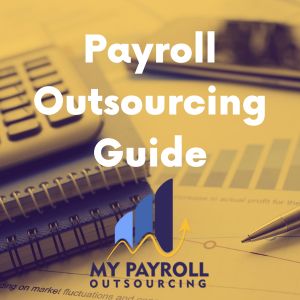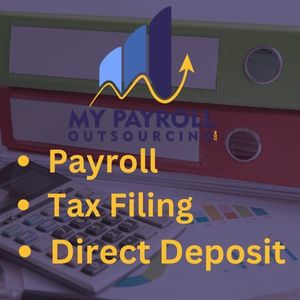
Payroll Outsourcing For Medium Sized Businesses
Payroll Outsourcing Buyer’s Guide for Medium-Sized Businesses
From the hospitality industry to manufacturing, as a medium-sized business, handling payroll in-house can be a cumbersome task. Payroll Outsourcing is a viable alternative that can lead to cost savings, greater efficiency, and more strategic use of resources. Here’s a comprehensive guide to help you understand the advantages and key features you should look for in a payroll outsourcing service.
Advantages of Payroll Outsourcing
- Cost-Effective: Payroll outsourcing can help reduce overhead costs associated with maintaining payroll software, training personnel, or hiring a dedicated payroll team.
- Time-Saving: Payroll processing is time-consuming. Outsourcing it allows businesses to focus more on their core competencies.
- Regulatory Compliance: Payroll outsourcing companies are experts in federal, state, and local laws and regulations. They help ensure your business stays compliant, thereby avoiding costly penalties.
- Access to Expertise: A good payroll provider has experts who specialize in handling payroll-related activities, reducing the likelihood of errors.
- Scalability: Outsourcing companies can scale services according to the needs of the business. Whether your business is growing or downsizing, payroll services can be adjusted accordingly.

Key Features to Look for in Payroll Outsourcing Services
- Comprehensive Services: Look for providers who offer a complete set of services – from payroll processing and tax filing to benefit administration and HR consulting.
- Customization: The ability to customize payroll services to fit your specific business needs is crucial.
- User-Friendly Interface: A good payroll service should provide an easy-to-use platform for employees to view and manage their payroll information.
- Secure Data Handling: The provider must have robust data security measures in place to protect sensitive employee information.
- Customer Support: Effective customer service is key. Choose a provider that offers 24/7 support, both online and offline.
- Reporting and Analytics: A good payroll outsourcing company should provide detailed reports and analytics that help businesses understand their payroll costs and trends.
- Integration Capabilities: The ability to integrate with your current systems (like HRIS or ERP) can simplify processes and eliminate redundancy.
- Reliability and Accuracy: The payroll company should have a strong track record of accuracy in processing payroll and staying compliant with tax laws.
- Transparent Pricing: The pricing structure should be clear, with no hidden charges.
Steps to Choosing a Payroll Outsourcing Company
- Identify Your Needs: Outline your payroll needs before you begin your search. This will help you shortlist potential providers who offer the services you require.
- Research: Once you have a shortlist, conduct thorough research on each provider. Check their track record, customer reviews, and ratings.
- Get Quotes: Request quotes from each shortlisted provider. Make sure to get a detailed breakdown of costs to make accurate comparisons.
- Assess Customer Service: Gauge the quality of their customer service. Good customer service should be responsive, knowledgeable, and helpful.
- Ask for a Demo: Request a demo of their platform to understand if it is user-friendly and meets your requirements.
- Review Contract Details: Before finalizing a provider, thoroughly review the contract details. Look for any potential red flags like hidden costs or rigid terms.
Outsourcing payroll is a significant decision that can drastically impact your business operations. Therefore, it’s essential to take your time to research, compare, and select the best fit for your business. Use this guide to help you make an informed decision.
Additional Advantages of Payroll Outsourcing
Flexibility: Outsourcing provides the flexibility to adapt quickly to changes, whether it’s new tax laws, company expansion, or reduction in workforce.
Improved Accuracy: Payroll providers have the right tools and expertise to ensure accuracy, minimizing the risk of errors that could lead to employee dissatisfaction or regulatory fines.
Technology Access: Payroll companies have access to the latest payroll technologies that might be expensive for your business to acquire independently.
Further Features to Look for in Payroll Outsourcing Services
Automated System: The best payroll providers have an automated system in place to ensure all tasks are performed seamlessly and on time.
Tax Service Guarantee: Look for providers that offer a tax service guarantee, ensuring they’ll cover the cost of penalties if they make a mistake on your payroll taxes.
Employee Self-Service: An Employee Self-Service portal where employees can access pay stubs, tax forms, and other payroll-related documents can save you time and administrative work.
Audit Assistance: Some payroll providers offer assistance during audits, guiding you through the process and providing necessary documentation.
Refined Steps to Choosing a Payroll Outsourcing Company
Check Certifications:
Look for providers that have recognized certifications like the American Payroll Association (APA) or the IRS Authorized E-File Provider. This shows they adhere to best practices and industry standards.
Analyze Scalability:
Consider the scalability of the service provider. They should be able to handle the changing needs of your business as it grows or downsizes.
Consider Provider’s Reputation:
An established track record and positive reputation in the industry can be a good indicator of the quality of their services.
Negotiate the Contract:
Once you’ve chosen a provider, negotiate the terms of the contract to suit your needs. Be clear about your expectations and the scope of services.
Payroll outsourcing can bring significant benefits, but the selection process requires careful consideration and due diligence. Take the time to understand your business’s specific needs and align them with a provider who can meet those requirements effectively. This guide serves as a roadmap to navigate your decision-making process, leading you to the right payroll outsourcing service for your business.

Additional Things to Consider for Payroll Outsourcing
- Data Backup and Recovery: Ask potential providers about their data backup and recovery systems. In case of a system failure or disaster, they should have reliable measures to restore your data swiftly and accurately.
- Industry Experience: The provider’s experience in your specific industry can be invaluable. Different industries have unique payroll complexities, and a provider familiar with your industry is likely to handle those nuances better.
- Payroll Tax Expertise: Ensure your provider has comprehensive knowledge of payroll tax laws. This is crucial because these laws can be complex and vary from state to state, and even city to city.
- International Payroll Capability: If your company has or plans to have employees outside of your home country, it’s essential to choose a provider with international payroll capabilities.
- Data Security: Inquire about the provider’s data security protocols. Employee data should be encrypted, and there should be stringent measures against data breaches.
- Dedicated Point of Contact: A dedicated account manager or point of contact who understands your business and its payroll needs can significantly simplify communication and problem resolution.
- Disaster Recovery Plan: A provider should have a disaster recovery plan in place to ensure that payroll can be processed without interruption in case of unforeseen circumstances.
- References and Testimonials: Ask for references from other clients, especially those in your industry. Testimonials can provide insight into the provider’s strengths and weaknesses.
- Cost of Transition: Consider the costs involved in transitioning to a new payroll system. These might include costs of transferring data, training staff, and potential downtime during the transition.
- Term and Termination: Check the term of the contract and the conditions under which it can be terminated. Be sure to ask about any charges or penalties for early termination.
Payroll outsourcing is a critical aspect of your business operations and should be chosen with care. Understanding what to look for and consider when choosing a provider will ensure a successful partnership that benefits your business. The goal is to find a service that aligns with your business needs, ensures compliance, maintains data security, and provides cost and time efficiencies. Use this guide as a reference throughout your decision-making process to make an informed choice.
Determining Your Business’s Payroll Needs
Before engaging a payroll service provider, it’s important to thoroughly assess your business’s payroll needs. This self-assessment should include the following considerations:
- Employee Size and Complexity: The number of employees and the complexity of your payroll (including factors like varying pay scales, bonus structures, and benefit plans) will significantly impact your needs.
- Frequency of Payroll: Whether you process payroll weekly, biweekly, or monthly can affect which provider is best suited to your needs.
- Compliance Needs: Each industry has different regulatory compliance requirements. Make sure your provider can handle yours.
- Growth Plans: If you anticipate significant business growth, make sure your provider can accommodate that growth.
- Payroll Features: Identify which payroll features are essential to your business. These may include direct deposit, check printing, payroll tax filing, garnishment payments, etc.
- Budget: Understand how much your business wants to spend on a payroll provider.
Payroll Outsourcing Process Overview
Understanding the typical process of payroll outsourcing can help you set realistic expectations and ensure a smooth transition:
- Initial Setup: The provider will need detailed information about your company and employees. This includes bank information, EIN, employee wages, benefits, and tax information.
- Training: The provider should offer training to your team on how to use their platform, including how to enter payroll data, generate reports, and handle any other essential tasks.
- Data Entry: Each pay period, you’ll enter or approve payroll data. This could include hours worked, vacation time, bonuses, or other variables.
- Payroll Processing: The provider takes over from here. They calculate wages, withdraw funds from your bank account, pay your employees via your chosen method, and handle payroll taxes.
- Reports and Records: The provider should deliver payroll reports each pay period and maintain records for audit purposes.
- Ongoing Support: The provider should offer ongoing support for any payroll-related issues or questions that arise.
Understanding the benefits, features, and processes associated with payroll outsourcing will empower you to make an informed decision about which provider is right for your medium-sized business. Take your time and choose a provider that not only meets your current needs but can also scale with your business as it grows and changes.

Additional Factors When Selecting a Payroll Outsourcing Provider
- Transparency: A good payroll provider will offer clear, transparent communication about their services, pricing, and any additional fees. Avoid providers that don’t provide this transparency upfront.
- Data Portability: In case you decide to switch providers or bring payroll back in-house, it’s important that you can easily retrieve your data. Ask potential providers about their data portability policies.
- Self-Service vs. Full-Service: Consider whether you prefer a self-service option, where you maintain some control over the payroll process, or a full-service option, where the provider handles everything.
- Proactive Updates: Look for providers who are proactive about keeping you informed of any changes in payroll or tax laws that could affect your business.
- Additional Services: Some providers offer additional services like HR and benefits administration. If you think you may want these services in the future, it may be beneficial to choose a provider that offers them.
Steps After Selecting a Payroll Outsourcing Provider
Once you’ve chosen a payroll provider, here are some next steps to ensure a successful partnership:
Notify Employees:
Inform your employees about the change in payroll processing. This could include new processes they need to follow or features they can now access.
Prepare Data:
Gather all necessary employee and business data to provide to the payroll company for setup.
Transition Plan:
Develop a transition plan with your new provider. This should include timelines, responsibilities, and communication plans.
Training:
Ensure all relevant team members receive proper training on the new system.
Review First Few Pay Cycles:
Monitor the first few pay cycles closely to catch any errors or misunderstandings early.
Payroll outsourcing is a significant decision with far-reaching implications. It requires thoughtful consideration, thorough research, and careful planning. This comprehensive guide provides a roadmap to navigate the process and ensure you make the best decision for your business. It’s not just about finding a payroll outsourcing provider, but the right provider that understands and caters to your unique business needs.